dancedancefrevolution
1K posts
just my horrible, little side blog :')
Don't wanna be here? Send us removal request.
Video
he’s mad cuz he couldn’t go trick or treating this year
304 notes
·
View notes
Photo

late for Halloween, but here’s vampire Robespierre
770 notes
·
View notes
Text

reach into your local sewer and you may find a friend
26 notes
·
View notes
Note
Happy birthday dear!
I'll go off topic for a bit but what do you want for your birthday ?
Could you also tell me some interesting facts about the french revolution?
Thank you! I want to have a relaxing day and to write.
Interesting facts:
- There are so many (admittedly small) but pressing mysteries about that time. For example: what was in the Armoire de fer? What were Camille Desmoulins' private and shameful vices (and Chinese baths of Saint-Just)? Or who shot Robespierre.
- Sodomy was decriminalized on a technicality in 1791, making homosexuality legal in frev France. (But it was still seen in horrible terms).
- Speaking of which, a number of French politicians of the time (although not necessarily those one might think of today) were known to have had male lovers. Examples include Hérault de Séchelles and Paul Barras.
- Contrary to the popular belief, the most people who died in frev were not nobles. Most nobles survived (the percentage of those who dies goes aroung 6% to 8%, although I can't find info if it's out of all nobles, or out of all people who died). Clergy was targeted in higher numbers and percentages than nobles, but most people who died were commoners.
- Although if we play it on a technicality, there were no nobles to die: the nobility was abolished in 1790. Similarly, unlike in England, no kings or other royalty were executed during the French revolution. There was no king nor queen in France in 1793. Yeah, this claim is heavily misleading for the obvious reasons, but it's important to remember that France did not become a Republic through the death of the king.
24 notes
·
View notes
Text
“haha what a riot” i say, my smile twitches nervously and i’m sweating, looking out of the window. the people are coming for me. i’m louis xvi
213K notes
·
View notes
Text

The calendar of the French Revolution.
Ken Alder, The Measure of All Things (2002: 149.
43 notes
·
View notes
Note
Different anon haha - what do you think are traits that the real Saint-Just had? (personality and such)
I started and erased this answer several times, because I honestly want to give a good reply, but whenever I try to express my thoughts I realize that it’s near impossible to do that without making a super long post. The thing about Saint-Just’s personality and traits is that... When you dig up sources and everything we have, you realize how little we actually know. The shortest I can, perhaps, describe Saint-Just is “cannot chill, ever”. But I understand that this is reductive and maybe all wrong.
It honestly feels like he wanted things but didn't always know how to ask or be understood. This is not a complete picture, of course; in some aspects (like his political ambition), he excelled. But in others? It’s more complicated. He absolutely cultivated the stoic demeanor he is known for. Idk if he wanted to appear cold and as if lacking any emotion, but he believed that being a phlegmatic is the best way to be, and he consciously worked to be one. I don't think it necessarily came naturally or easily to him, though.
Seems like one of those people who are cold on the outside but dramatic on the inside, and kind of often frustrated about things not being how they feel things should be (and not just about important things; anything).
He didn't take criticism well, in that he would shut down at even the slightest criticism/rejection. He would not make a scene, but would sulk and/or rant in his notes. Speaking of perceived rejection, he was clingy. Not to anyone or everyone, but he had these tendencies and it provided another source of misunderstanding and frustration (at least judging by some things that he wrote in his notebooks). I think he lacked self-awareness about certain things. But he was also a bad liar and a bad manipulator. He seemed to have a dose of naivety and was too gullible, almost, in certain ways. I feel he lacked life experience in some aspects (but he’d never openly admit it). He was serious (outside of the private sphere, of which we know very little). Similarly, he didn't seem to be too sociable: he had 2-4 friends in his life (Thuillier, Gateau, Robespierre and Le Bas). He also didn’t seem to be particularly talkative (at the Convention at least; I am not equally sure about the private sphere). He Remembered Everything and he seemed to hold grudges. But we also know that he released his enemies (Gelle and Thorins) from prison and saved them from being executed. We don't know why he did that, but he did. He had certain expensive tastes that his opponents attacked, like dining in restaurants or a bathroom in his apartment. These accusations hurt him; we know he defended himself re: restaurants, at a time when he barely spoke at the Convention. I feel there is some truth about the whole “he thinks he is oh, so smart” - he was ambitious, and he believed that he had qualities needed for a great statesman. But he also seemed to be insecure in many ways (not that he’d ever admit it).
And he was loyal. Fiercely so.
32 notes
·
View notes
Text
On 9th December 1785, Saint-Just and Thérèse Gelle were godparents to a friend’s son. Church books from Blérancourt show the baptism record with their signatures. This is the earliest (or one of the earliest?) Saint-Just’s signatures that we know of:
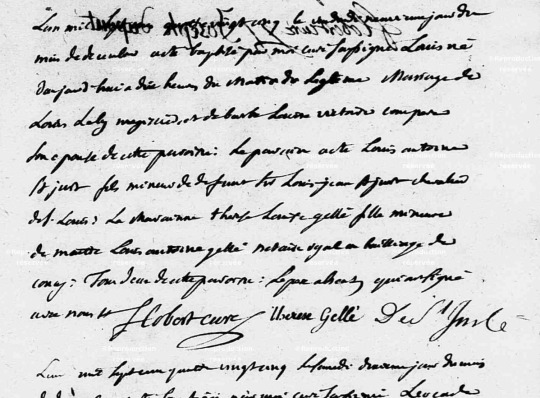
It looks so different than his later ones (he was 18 here):

(and yes, this is Thérèse’s signature next to his) Source: Archives départementales de l'Aisne (document titled 5Mi0161 - 1772 1792, page 242)
37 notes
·
View notes
Note
you'll love this: Therese Thorin Gelle
Oooh, you bet! Thérèse, my love. Ok, first things first: My interest in Thérèse is not because of her teenage boyfriend. Obviously, this is how you learn about her, and most of what we know about her is due to Antoine. But I am a sucker for ordinary people in unordinary situations, and I can’t resist. I mean... Imagine an equivalent of your high school boyfriend becoming one of the most significant people in a tumultuous political situation, but your family (both birth and in-laws) are at war with him and it’s a mess; everything is a mess. You didn’t sign up for this shit but you are dragged into it, one way or the other.
tl;dr: Thérèse was an illegitimate child of a notary Louis Antoine; as a teenager she had a “thing” with a teenage poet Louis Antoine; she was married before the age of 20 to a another notary (most probably so she couldn’t marry her poet boyfriend); the boyfriend loses it, escapes town, and Thérèse is left there with a husband she doesn’t like much. A bit later the Revolution starts, and she sees a very public power struggle between her family and her (ex?) lover; ultimately her (ex?) lover becomes one of the most powerful people in France. Thérèse leaves her husband on their 7th wedding anniversary and goes to Paris; everybody thinks it’s because of her (ex?) lover. Her divorce is finalized, and 19 days later the (ex?) lover dies. She spends the rest of her life in the village and dies at the age of 39. (ugly cry)
You know what? One of these days I might write posts detailing everything we know about Thérèse (which is not much).
23 notes
·
View notes
Text
If it isn't for that damn guillotine, Robespierre would be 263 by now
77 notes
·
View notes
Photo




miscellaneous Saint Just and a random Fouché
443 notes
·
View notes
Photo


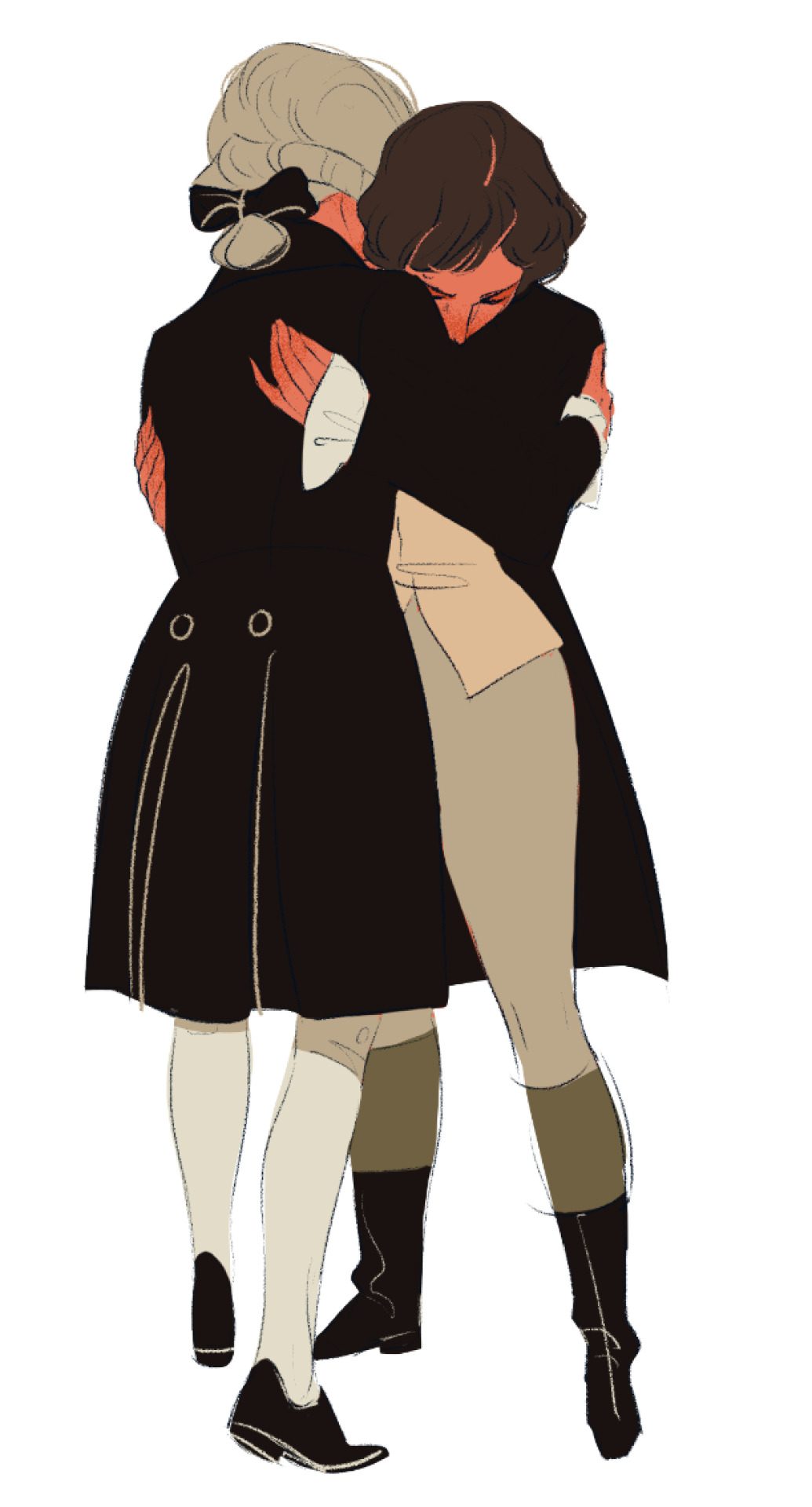
more quick drawings inspired by film Saint Just et La Force des Choses
493 notes
·
View notes
Photo
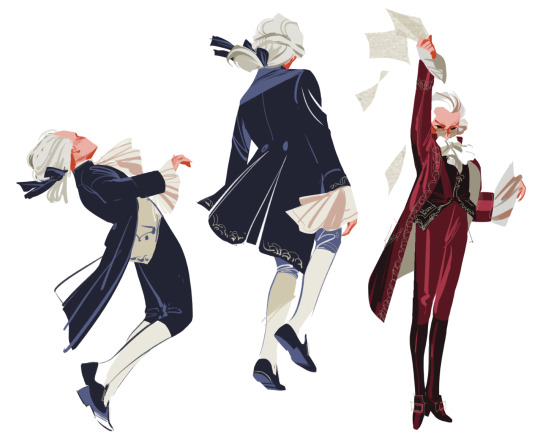
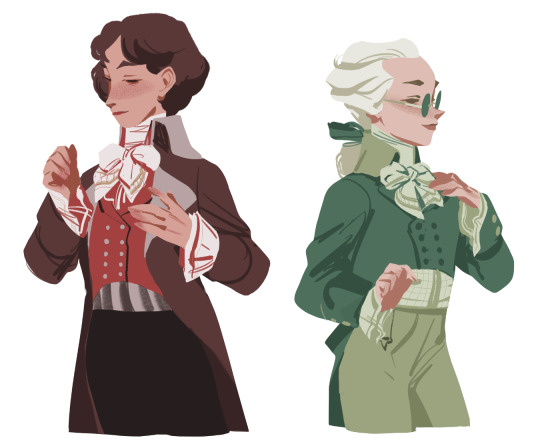





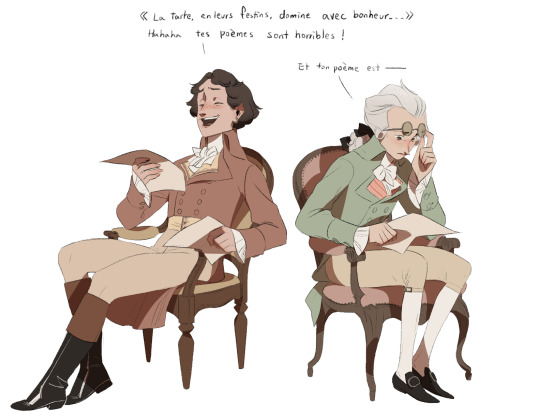
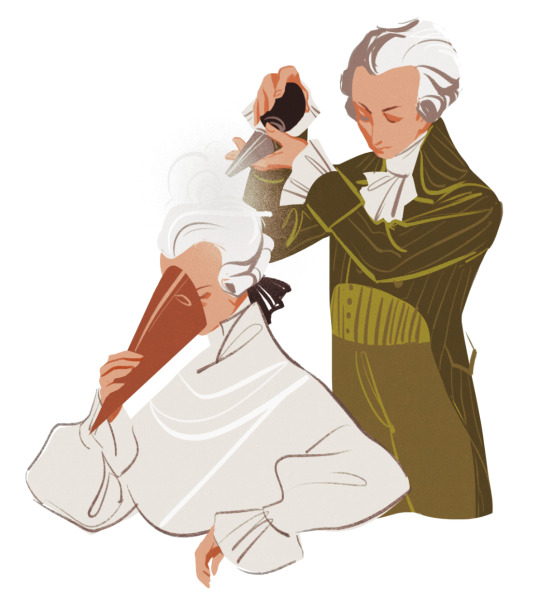
More Robespierre going about his life and some CSP drama
1K notes
·
View notes



